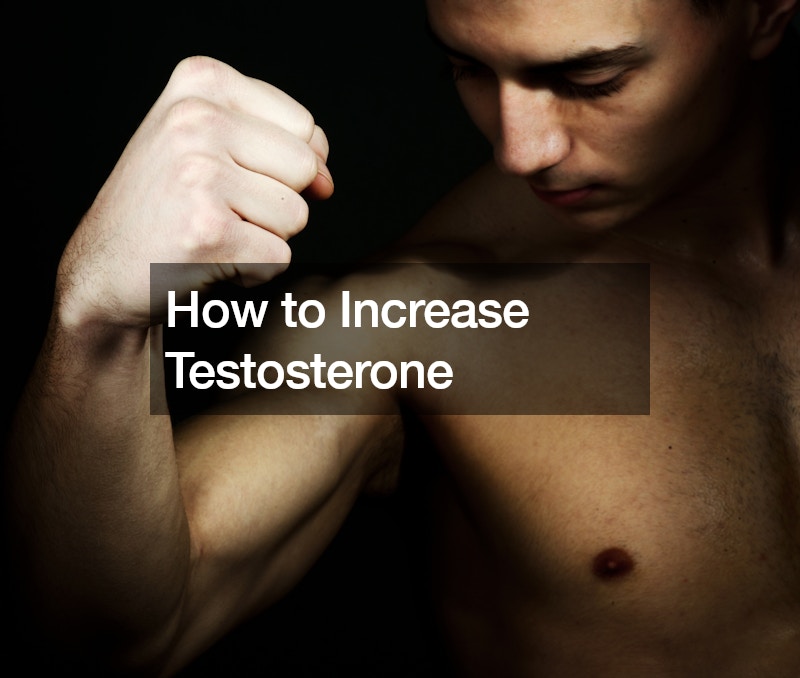
Testosterone is a vital hormone that plays a crucial role in male health, influencing muscle mass, bone density, red blood cell production, and overall well-being. Low levels of testosterone can lead to various health issues, including decreased libido, fatigue, and depression. Wondering how to increase testosterone? Here’s how:
Exercise Regularly
One of the most effective ways to boost testosterone levels is through regular exercise, particularly strength training and high-intensity interval training (HIIT). Weightlifting and resistance training stimulate muscle growth and promote the production of testosterone.
Incorporating compound movements like squats, deadlifts, and bench presses into your workout routine can significantly enhance hormone levels. Additionally, HIIT has been shown to improve testosterone levels more effectively than steady-state cardio exercises.
Maintain a Balanced Diet
A balanced diet rich in essential nutrients is crucial for maintaining optimal testosterone levels. Consuming adequate amounts of protein supports muscle repair and growth, while healthy fats from sources like avocados, nuts, and olive oil are essential for hormone production. Zinc and vitamin D are particularly important for testosterone synthesis. Foods like lean meats, fish, eggs, and fortified cereals can help meet these nutritional needs. Additionally, avoiding excessive sugar and processed foods can prevent insulin resistance, which can negatively impact testosterone levels.
Get Enough Sleep
Quality sleep is vital for overall health and hormone regulation, including testosterone production. Research indicates that inadequate sleep can significantly lower testosterone levels. Aim for 7-9 hours of sleep per night to ensure your body has enough time to recover and produce hormones effectively. Establishing a regular sleep schedule and creating a restful environment can improve sleep quality and, consequently, testosterone levels.
Manage Stress
Chronic stress elevates cortisol levels, a hormone that negatively impacts testosterone production. Managing stress through relaxation techniques such as meditation, deep breathing exercises, and mindfulness can help lower cortisol levels. Regular physical activity, spending time in nature, and engaging in hobbies you enjoy can also reduce stress and support healthy testosterone levels.
Maintain a Healthy Weight
Being overweight or obese is often associated with lower testosterone levels. Excess body fat can increase the production of estrogen, which can suppress testosterone. Maintaining a healthy weight through a combination of regular exercise and a balanced diet can help optimize hormone levels. If you are overweight, gradual weight loss through sustainable lifestyle changes is more effective than extreme dieting or rapid weight loss programs.
Consider Natural Supplements
Certain natural supplements can support testosterone production. Fenugreek, ashwagandha, and tribulus terrestris are popular herbal supplements that have shown promise in boosting testosterone levels. Additionally, zinc and vitamin D supplements can be beneficial, especially if you have a deficiency. Always consult with a healthcare provider before starting any new supplement regimen to ensure safety and efficacy.
.







